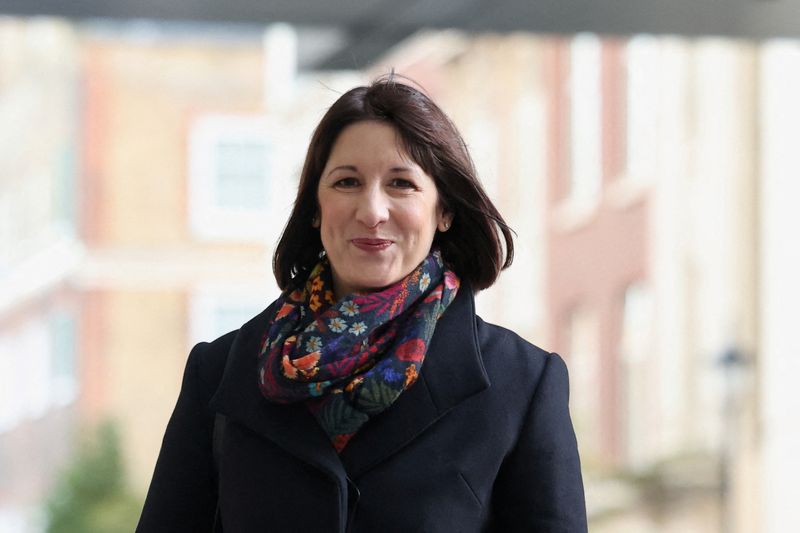
© Reuters. FILE PHOTO: British Shadow Chancellor of the Exchequer Rachel Reeves arrives at BBC Broadcasting House, ahead of her appearance on ‘Sunday with Laura Kuenssberg’, in London, Britain, November 19, 2023. REUTERS/Isabel Infantes/File Photo
LONDON (Reuters) – Britain’s opposition Labour Party would stick to its fiscal rules and ensure its “sums add up” should it win power at an election expected later this year, its finance spokesperson Rachel Reeves said on Sunday.
Labour, which is 20 points ahead in polls, is under pressure to detail how it would pay for its spending plans for public services without reversing tax cuts announced last week by Prime Minister Rishi Sunak’s government.
To partly pay for those reductions, the government has taken two of Labour’s cash-raising schemes – scrapping a policy which allowed wealthy, often foreign residents avoid tax on overseas income, and extending a windfall levy on North Sea oil and gas firms’ profits.
“I have to be honest that we’re not going to be able to turn things around straightaway,” Reeves told BBC TV when asked about the scale of the economic challenge facing the country, which officially fell into recession in the second half of 2023.
While Labour has ditched a target to eventually spend 28 billion pounds ($35.3 billion) a year on green industries, it is still promising to inject cash into public services by closing some tax loopholes, but not, Reeves said, by breaking fiscal rules set by the governing Conservatives.
“I feel that the importance of fiscal rules and providing constraints in which governments act is incredibly important,” Reeves said. “Because making sure that the sums add up, making sure that we start to get debt on a downward trajectory is important.”
Among the tax cuts announced on Wednesday by Sunak’s finance minister Jeremy Hunt was a 10-billion-pound ($13 billion) reduction in National Insurance (NICs), a social security contribution paid by millions of workers.
In an interview with the Sunday Times, Sunak said it would be his party’s goal to eliminate National Insurance altogether.
“We want to end this double taxation on work,” he said. “So … our long-term ambition is to end that unfairness, to keep cutting NICs until it’s gone.”





